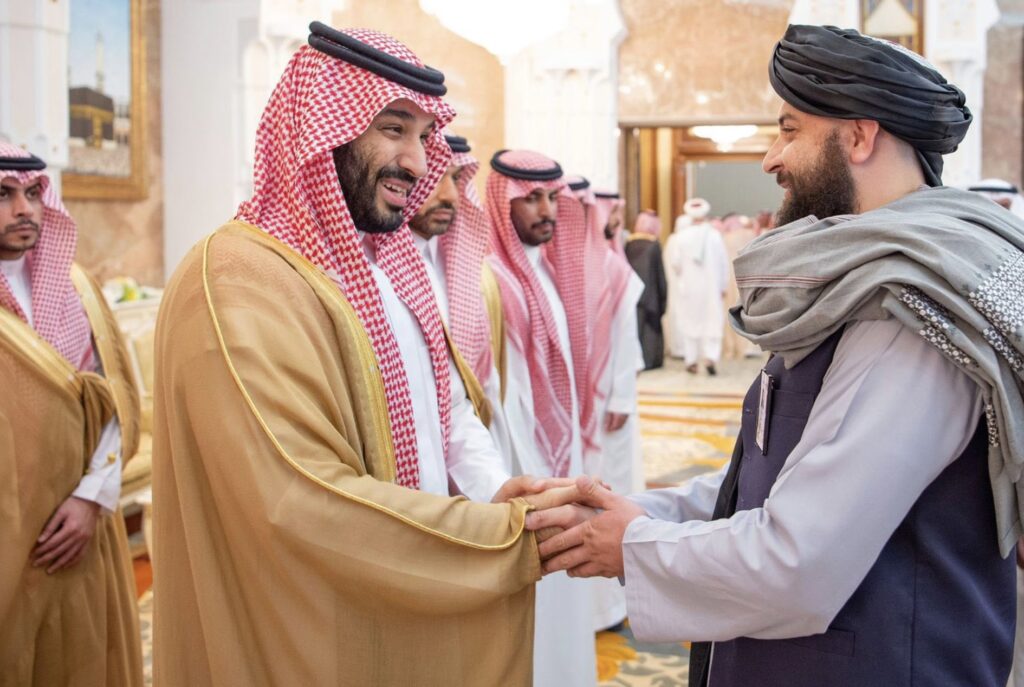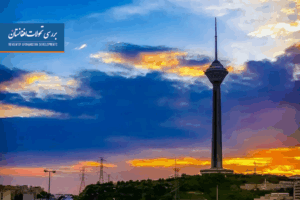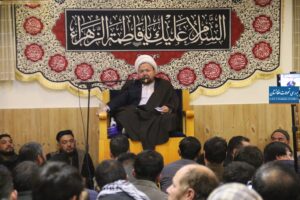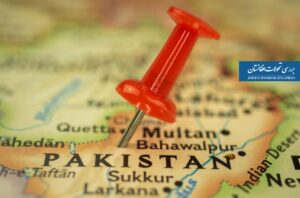Review of Afghanistan developments
Following the Taliban’s rise to power, officials from the group have periodically visited Saudi Arabia to undertake the Hajj or Umrah pilgrimage. These journeys appear to be natural, as Taliban officials have spent years in hiding and have been unable to undertake the Hajj pilgrimage. But recently, officials from the Taliban government have undertaken more trips to Saudi Arabia than in the past, particularly during periods outside the Hajj season.
In January 2025, Sirajuddin Haqqani, a senior official in the Taliban government, and Amir Khan Muttaqi, the Foreign Minister of the country, visited Saudi Arabia in March 2025. Zabihullah Mujahid, a spokesperson for the Taliban government, reported that Riyadh extended a cordial reception to Muttaqi, complete with diplomatic protocols.
While these journeys may appear routine, they also bring to light additional concerns associated with these pilgrimages. In essence, it can be argued that Taliban officials are leveraging the Hajj as a tool for fostering engagement and solidifying connections. This theory is further supported by the fact that these trips commenced following the reopening of the Saudi Arabian embassy in Kabul.
The connection between the actions of Saudi Arabia and Afghanistan can be understood as Saudi Arabia engaging in proactive diplomacy towards Afghanistan and the Taliban government by reopening its embassy in Kabul after a two-year hiatus. In response, Taliban officials have shown a favorable reaction to this initiative through their multiple visits. This ongoing interaction may pave the way for negotiations and potential agreements between the two parties.
Riyadh’s goal in re-engaging with the Taliban
When the Taliban reasserted control in Afghanistan, several analysts anticipated that, based on Riyadh’s approach during the initial phase of the Taliban’s previous rule, Saudi officials would foster amicable relations with the current Taliban government. However, contrary to these expectations, the situation unfolded differently. Following the Taliban’s takeover, Riyadh shuttered its embassy in Kabul in early 2023, citing security concerns, and relocated its personnel to Pakistan.
For a country such as Saudi Arabia, adopting a policy of disengagement from the situation and developments in Afghanistan—an area of significant importance in regional equation—is simply not acceptable. This is particularly pertinent given that its competitor, Qatar, is deeply engaged in Afghanistan and has already capitalized on the advantages it has secured.
The issuance of travel permits by Saudi Arabia to certain senior Taliban officials, including Amir Khan Muttaqi and Sirajuddin Haqqani, who are restricted from traveling due to UN Security Council sanctions, reflects Riyadh’s intention to foster relations with Kabul. In the last two years, Riyadh has provided travel permits to various Taliban officials, but none have been as notable as the one granted to Sirajuddin Haqqani.

This perspective allows for an evaluation of the motivations driving Riyadh’s return to Kabul. It appears that following a phase of cautious observation, Saudi Arabia has reached a decision regarding its approach to Afghanistan and has opted for a strategy of active participation. By reestablishing its embassy in Kabul and appointing a resident ambassador, Riyadh aims to reclaim its stake in Afghan affairs.
Taliban’s goal of strengthening relations with Saudi Arabia
Initially, the Taliban showed little interest in fostering a close relationship with Saudi Arabia upon regaining control of Afghanistan. However, they have since prioritized interactions with Riyadh for various reasons. Firstly, the Taliban government requires robust international relations to demonstrate that it is not isolated, regardless of other challenges. Secondly, building ties with Saudi Arabia signifies that the Taliban is engaging with one of the most significant Islamic countries.
Third, due to its substantial investment capabilities, Saudi Arabia has the potential to significantly contribute to the economic development of the Taliban government. Fourth, owing to its amicable ties with Western nations, particularly the United States and former President Trump, Saudi Arabia could serve as an effective intermediary between Kabul and Washington.
Muttaqi’s trip to Riyadh before Trump’s trip to Saudi Arabia
Regarding the final point, which pertains to Saudi Arabia’s role in facilitating dialogue between Kabul and Washington, it is important to highlight that the US President is expected to visit Riyadh shortly. The promise made by Bin Salman to invest $600 billion in the United States garnered significant attention from Trump, leading him to prioritize Saudi Arabia as the inaugural stop on his foreign tour.
Taliban government representatives appear to be seeking the assistance of Bin Salman as a mediator to encourage Trump to adopt a more constructive stance regarding Afghanistan. While initial discussions have commenced between Taliban officials and American representatives, these conversations involve American officials, with Trump being the ultimate decision-maker. Consequently, a primary objective of Amir Khan Muttaqi’s trip to Saudi Arabia is likely to persuade Saudi officials to motivate and influence Trump to foster a positive relationship with Kabul.
Conclusion
While there is an expressed interest in enhancing engagement from both Afghanistan and Saudi Arabia, Riyadh has not yet consented to recognize a diplomat from the Taliban government or transfer the Afghan embassy in Riyadh to the Taliban’s Ministry of Foreign Affairs. In the interim, the Taliban government has prioritized Hajj diplomacy to foster relations, with its officials making regular visits to this country.
Kabul appears to be working towards establishing equilibrium in its relationships with Arab nations. This effort is evident through multiple visits to Saudi Arabia, where it has not only responded favorably to Riyadh’s approval for engagement but is also striving to maintain a balanced relationship among Saudi Arabia, Qatar, and the UAE.
Kabul is also aiming to leverage Hajj diplomacy to request Saudi officials to facilitate discussions between Kabul and Washington prior to Donald Trump’s visit to Riyadh.

















